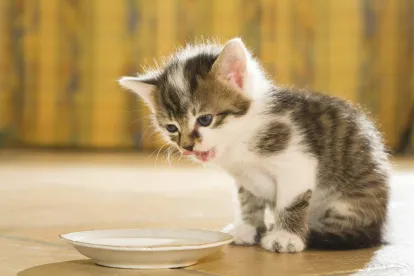I am willing to go out on a limb and say that if asked whether an animal, say, a raccoon, is capable of committing malicious criminal acts, most humans would agree that the issue is beyond dispute. But, alas, most humans would be wrong (apparently it very much can be disputed). There is good news, however. The nation’s courts have been quietly tackling the issue, and, thankfully, they have been able to allay any fear of a raccoon uprising occurring in the near future. A federal court in Pennsylvania recently had occasion to address the issue, and it reconfirmed that animals are indeed incapable of committing “vandalism” or “malicious mischief,” both generally and for purposes of obtaining first-party insurance coverage. See Capital Flip, LLC v. Am. Modern Select Ins. Co., No. 2:19-cv-00180 (W.D. Pa. Sept. 19, 2019).
The Capital Flip case stems from a dispute between Capital Flip LLC and its insurer, American Modern Select Insurance Co. Capital Flip owned property in the Pittsburgh area insured under a “dwelling policy” issued by American Modern. In April 2018, Capital Flip discovered that raccoons (or, perhaps, one especially malicious raccoon) had entered the property and caused substantial interior damage. Capital Flip sought coverage for the damage under the American Modern policy, which covered specific “perils insured against,” including losses arising from “vandalism or malicious mischief.”
According to Capital Flip, the damage was covered because it resulted from “vandalism” or “malicious mischief” committed by the so-called culprit raccoon. American Modern denied the claim and advised Capital Flip that damage caused by animals cannot possibly constitute loss arising from “vandalism or malicious mischief” within the meaning of the policy. Unconvinced by this reasoning, Capital Flip commenced this action against American Modern, asserting claims for breach of contract and bad faith.
In its motion to dismiss, American Modern argued that Capital Flip’s claims failed as a matter of law because raccoons are incapable of committing “vandalism” or engaging in “malicious mischief.” But as noted, reasonable humans can apparently disagree in this respect. Indeed, Capital Flip reasoned, because the policy did not specifically define “vandalism” or “malicious mischief,” that it was at least possible that these terms could encompass damage caused by animals. Alternatively, Capital Flip argued that the policy was ambiguous and must be construed in its favor given that these terms were undefined. At a minimum, Capital Flip asserted that this issue was unsuitable for resolution on a motion to dismiss because, unsurprisingly, no Pennsylvania court had ever decided whether an animal is capable of engaging in “vandalism” or “malicious mischief.”
After considering the parties’ arguments, the court declared, for the first time in the history of the Commonwealth of Pennsylvania, that animals are, as a matter of law, incapable of behaving in the manner required to implicate insurance coverage for “vandalism or malicious mischief.” While the policy did not define “vandalism” or “malicious mischief,” the court found Capital Flip’s reading of these terms to be untenable, and undermined by basic contract interpretation principles. As the court observed, the ordinary dictionary definitions of “vandal,” “mischief,” and “malicious” all require the subject to act with some level of conscious deliberation. The Pennsylvania penal code applicable to Criminal Mischief was similar in this regard. The court explained that accepting any contrary interpretation would require a determination that animals are capable of behaving in ways that simply defy the laws of nature. Refusing to accept such a reading, the court held that the terms “vandalism” and “malicious mischief” clearly and unequivocally presuppose conduct by a human actor.
Other courts have addressed whether damage caused by animals is included within the “vandalism and malicious mischief” coverage of an insurance policy. The Capital Flip court found that each of them has declined to interpret these terms as including animal behavior. Luckily for us humans, it appears that these courts found no evidence to suggest that animals are capable of forming the intent required to engage in the sort of willful conduct contemplated by the “vandalism or malicious mischief” language in insurance policies. Interestingly, in one such case, a New York court held that it only “reluctantly” concurred with other cases finding that coverage for vandalism or malicious mischief is limited to human acts. See Roselli v. Royal Ins. Co. of Am., 538 N.Y.S.2d 898 (Sup. Ct. Monroe Cty. 1989). The Roselli court may have been privy to information about animals these other courts were not, but it reached the same result nonetheless. The Capital Flip court also agreed with that result. Accordingly, it granted American Modern’s motion to dismiss, finding the sole premise of Capital Flip’s claims — that the dwelling policy covers damage caused by malicious raccoons — was legally unsustainable.
Having restored your understanding of nature and contract interpretation, we leave you with this poem by a New Mexico appellate court:
Alas, it is written in the law
That the animal with the paw
Does not have the mind
To do the damage of this kind.
And so, I’m sorry, the Plaintiff won’t get paid.
That’s how the contract was made.
This policy does not apply
When the [raccoon] runs awry.
Montgomery v. United Sers. Auto. Ass’n, 118 N.M. 742 (N.M. Ct. App. 1994).




 />i
/>i

